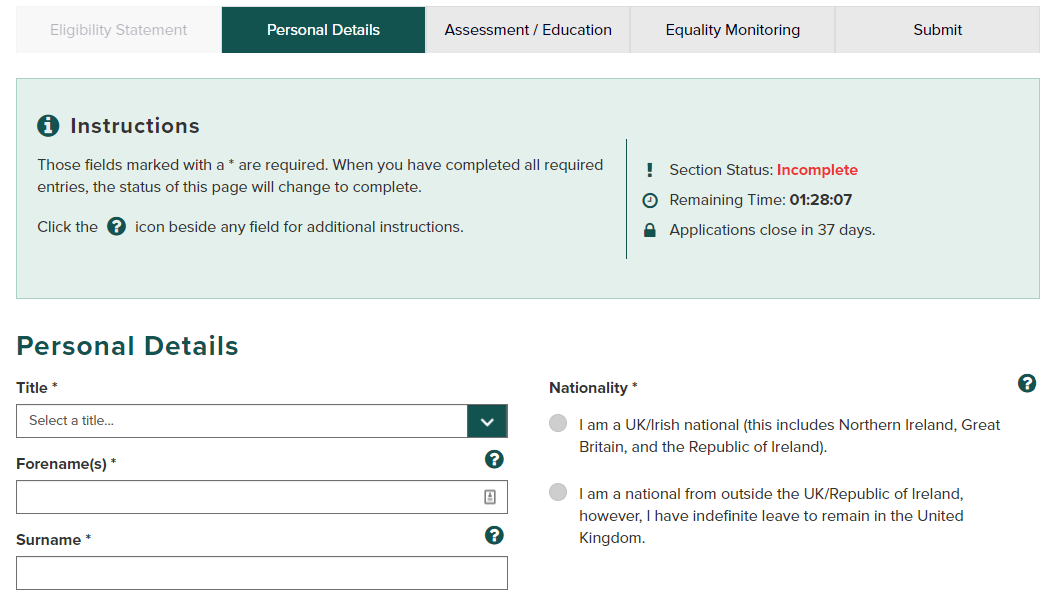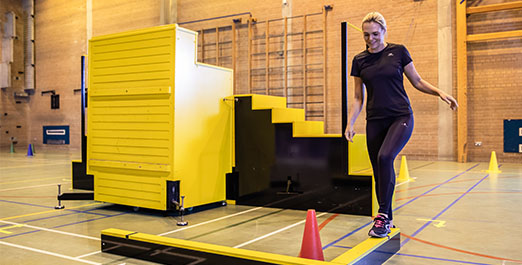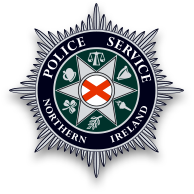How Do I Join?
The Recruitment Process
The recruitment process is made up of 8 different stages, all of which you must pass to be invited to your induction event at the Police College. Following this, you will then start your exciting journey of becoming a police constable! Take a look at the short video and click into the different pods to get more information on each of the stages of the recruitment process.
Before you apply, ask yourself... Can you commit?
1. Online Application Stage
Online Application Stage
- The first stage of the recruitment process is the Application Stage. (Applications are accepted during dedicated / advertised application windows. Check Recruitment News on our homepage for an indication on when applications will next be accepted).
- All applicants are required to fully complete the Online Application Form which includes an Equality Monitoring Form during this period. By completing these forms you are providing PSNI with your consent to process your personal and sensitive data for the purpose of the recruitment process.
- The application form can only be accessed via www.joinpsni.co.uk and only one application will be accepted for each applicant.
- When completing your online application you will be given the opportunity to declare any reasonable adjustment needs, which you may have, which would allow you to participate fully in the recruitment process (including the Initial Selection Test and the Assessment Centre). Please refer to our Reasonable Adjustment Request Process guidance for full details on the process to follow to request and evidence any reasonable adjustment needs.
- All applicants must meet the following eligibility criteria:
- Age: You can apply from the age of 17. However on appointment, you must have reached the age of 18 and be no more than 57. The Application Form will check that applicants have attained the age of 17 and be no more than 57 by the end of the application window..
- Nationality: Applicants must be eligible to work permanently in the UK.
- Education: Applicants must have a minimum of 5 GCSEs (or equivalent) at A*–C grade, including English Language.
- Computer Literacy: Applicants must be able to demonstrate that they have the level of computer literacy required to effectively perform the role of a constable. This will be tested at a number of stages in the recruitment process but there is no requirement for a formal IT qualification.
- Upon completion of your online application you will receive a message on-screen to confirm "Application Submitted". We will be in contact with you by email within ten working days once your application has been processed. (Please note, we do not provide immediate email acknowledgement of the submission at the time of application). If you have not received email confirmation of your application by the end of the ten working days, it is important that you contact us to follow-up on your application so that we can be sure everything is in order. Please email us via info@joinpsni.co.uk to check in this way.
Below is a screenshot from the Application Form.

2. Online IST / Evidence Uploader
Online IST / Evidence Uploader
Initial Selection Test (IST)
With your application form now successfully submitted, you will be invited to complete the online Initial Selection Test (IST). You will receive a unique individual link for you to access the test to the email address that was input on your application form.
The IST is made up of two assessment elements: The Verify Interactive - Deductive Reasoning test and the Global Skills Assessment (GSA).
You have only ONE OPPORTUNITY to attempt and pass the IST per campaign so we would advise you to wait until you are fully prepared before starting your IST.
You are required to attempt both assessment elements of the IST in order to be considered.
Scores from both the IST elements are aggregated to formulate an overall IST score. The IST pass-mark is set against this combined overall score.
Those candidates who achieve or exceed this pass-mark are deemed to meet the standard required to progress in the recruitment process.
You should also be aware that the IST may be re-tested at Assessment Centre.
For access to a high level introduction of the IST element please click here.
Providing Evidence in relation to the Education Eligibility Criteria and Right to Work
Online Evidence Uploader
When completing your application you will be asked to confirm that you can provide full and final evidence of your eligibility in relation to the Eligibility Criteria (Education and Right To Work in the UK) when required.
Later in the recruitment process, you will be required to upload your evidence via an online Evidence Uploader.
Only candidates who are successful in the Initial Selection Test will be required to present evidence using the Evidence Uploader.
Detailed instructions will be provided to guide you on the use of the Evidence Uploader.
The online Evidence Uploader will be available for a specific period during the recruitment campaign. Further guidance will be provided at the relevant time. You will be expected to provide evidence within a set timeframe. You will be required to upload images / electronic files of your paperwork.
The online Evidence Uploader phase is not intended as an opportunity to log all your paperwork with PSNI. You simply need to provide evidence of how you meet the minimum Eligibility Criteria. Keep things simple. Applicants are discouraged from being excessive in presenting paperwork, as this can lead to delays in the processing of applications.
Education
You must be able to provide evidence that you have attained a minimum of 5 GCSEs (or equivalent) at A*-C grade, including English Language.
If you have lost your original GCSE (or equivalent) certificates we recommend that you contact your examination board NOW, in order to request either replacement certificates, or a final certifying statement of results.
While candidates may present school reports, ‘results-day’ information slips or other similar documentation as evidence, we encourage the use of formal certificates or a Final Certifying Statement of Results.
When the next campaign is launched, the certification due date for the completion of qualifications for this campaign will be communicated.
In exceptional cases, where the qualification has only recently been completed but not yet certified, exceptions to the certification date may be considered, providing formal supporting evidence is available.
Please refer to our Education FAQs for information on preparing to show evidence in relation to the Education Eligibility Criteria.
Right to Work in the UK
In addition, you must be able to provide evidence of your Right to Work in the UK. All applicants, regardless of where they are from are required to present evidence of their Right to Work in the UK.
For UK / Ireland citizens, the most straightforward way to provide evidence of your Right to Work in the UK, is to provide evidence of the photo page of either your British or Irish Passport.
For non-UK / Ireland citizens, there are various options to prove your Right to Work in the UK, however most applicants find it most straightforward to provide your "Share Code", along with evidence of the photo page of your passport.
Refer to our Right to Work FAQs for more detailed guidance.
3. Assessment Centre
Assessment Centre
If you pass the Initial Selection Test and you meet the Education Eligibility Criteria and Right to Work Criteria you will be given an appointment to attend an Assessment Centre. The Assessment Centre is set in a policing context and requires you to take on the role of a constable. It consists of a number of different exercises, including written exercises and role plays. You may also be asked to complete a re-test of the Initial Selection Test for verification purposes.
Overall the Assessment Centre is designed to assess you against the Competency Values Framework for Policing Professionals* (CVF).
The Assessment Centres are held in locations in and around Belfast. The majority of sessions are held during weekdays and consist mainly of morning and afternoon sessions, with some evening sessions available.
For more information on how to prepare for the assessment centre and assessment centre scheduling please click here.
Also, please refer to the Guidance for Applicants for more information on the CVF.
Also please visit the College of Policing's website for further details.
The Competency Values Framework
Values (3)
Values are beliefs which are important to us as individuals, and which motivate particular behaviours and actions. Policing is a deeply ethical profession.
- Courage
- Respect and empathy
- Public service
Competencies (6)
Competencies are skills, abilities and practical behaviours that contribute to effective job performance.
- We are emotionally aware
- We take ownership
- We collaborate
- We support and inspire
- We analyse critically
- We are innovative and open-minded
*Source: College of Policing Ltd.
Contains information licensed under the Non-Commercial College Licence
4. Vetting
Vetting
You are required to be vetted as part of the recruitment process.
You will be required to complete vetting questionnaires, which must be completed and returned within two weeks of receipt. If you fail to return your completed vetting questionnaire within this timeframe, your application may be discontinued. You can assist with the process being as smooth as possible by ensuring that you complete the vetting questionnaires and answer all the questions in full.
The success of the vetting process depends largely on your honesty. Therefore, absolute honesty is required and any dishonesty at any stage during the process may affect your application. Lying, concealing the truth, or deliberately withholding information when completing your vetting questionnaire, or during a vetting interview is a very serious matter, whether it becomes known during the vetting process or after and is likely to be regarded as evidence of unreliability.
Vetting is a complex process and involves various checks to be completed. This includes everyone declared on your vetting applications as well as your wider family circle, other close associates and your previous behaviour. All applications are considered on their own individual merits. Dependent on your personal circumstances your vetting may take longer than others.
All applicants are required to have a three year checkable history. Applicants who spend 12 months or less outside of the UK or Republic of Ireland but who intend to return, or return afterwards, should be considered as having taken an extended holiday. They therefore maintain residency. Examples of extended holidays may include, but are not limited to:
- taking a gap year or similar, before or following university;
- travelling overseas for a year;
- spending time overseas visiting family.
Where the applicant does not meet the residency criteria, the relevant enquiries will be made with relevant overseas jurisdictions where there is the facility to do so. This process can take a considerable time and is outside the control of the PSNI.
If the Police Service of Northern Ireland cannot carry out the necessary checks your vetting application may not be processed further.
As part of your vetting application, you will be asked about your previous employment history as any previous misconduct or disciplinary processes in the workplace will require an assessment of your suitability. Further information relating to how these checks are conducted can be found in the Guidance for Applicants.
Detailed information regarding Vetting (including examples of the certain types of offences that mean you will not be considered for appointment) can be found in the Guidance for Applicants.
For FAQs regarding vetting, click here.
5. Physical Competence Assessment
Physical Competence Assessment
…in other words, the fitness test!
The Recruitment PCA is made up of a number of different activities such as running, crawling, climbing, balancing, lifting, carrying, dragging and weaving.
These activities are incorporated into a circuit or obstacle course which need to be completed three times in 4 minutes and 30 seconds during the recruitment process. (You must complete the In-Service PCA three times in 4 minutes during the Student Officer Development Programme and at approximately 12 months and 18 months post attestation, during the Probationary Officer Development Programme).
If you do not pass the Recruitment PCA you will be invited to complete one re-test twelve weeks after your initial PCA. You will also be given the opportunity to attend five PCA Support Sessions prior to completing your PCA Re-test.
Want to see how the course is laid out to help you prepare? Click here for a diagram of the obstacle course.
Preparing for the PCA…
We would advise you to think about starting to prepare for the PCA now!
This part of the recruitment process might seem like a long way off, but starting training now will set you in a better position to tackle the course on the day.
If you would like some help with training, click here for an example training schedule.
You can also watch the following video to see the Recruitment PCA in action.
For more information on the PCA please refer to the Guidance for Applicants booklet.


6. Online Learning
Online Learning
You will be required to undertake and successfully complete approximately 16 hours of eLearning material within a 4 week period. The modules you will cover in the eLearning package include:
- Observation and experience
- Understanding community relationships
- Communicating in your community
- Problem Solving and Decision Making
7. Health Assessment
Health Assessment
- It is expected that candidates will have already been living a healthy lifestyle in terms of diet and exercise before the health assessment.
- If you are invited to attend a health assessment you will be assessed by an Occupational Health Nursing Adviser to ensure you are able to enter training and carry out your role as a Police Officer. If appropriate, you may also be examined by a Medical Adviser.
- You can help the Occupational Health and Wellbeing Team by providing them with all information and documentation relevant to any current or previous medical condition/s.
Some Key Medical Standards...
You will be required to meet some key medical standards as part of your application to be a Police Officer. Click on the tabs for more information:
Vision
Vision
- Bilateral visual acuity, using corrective lenses if necessary of at least 6.6 (6/7.5 in the better eye and 6/12 in the other eye)
- Unaided acuity 6/36 binocularly
- Near vision N6 aided or unaided
- Normal visual fields
- Severe colour deficiency is not acceptable
Hearing
Hearing
If you have a hearing loss of more than a total of 84 dB over 0.5, 1 and 2 kHz range, or more than a total of 123 dB over the 3, 4 and 6 kHz range in both ears, you are unlikely to meet the standard.
When one ear is affected or when aids may overcome the difficulty, further assessment by Police Service of Northern Ireland’s Medical Team will be required to identify possible adjustments.
Disability
Disability
If you have a disability you will be considered individually on your merit. The Police Service of Northern Ireland's Medical team will consult with you and consideration will be given to whether there are reasonable adjustments which can be made to enable you to do the job now and for a reasonable time.
You will have the option to seek an adjustment in the recruitment process when completing the application form.
8. Substance Misuse Test
Substance Misuse Test
- You will be required to undergo a pre-employment Substance Misuse Test prior to being offered an appointment as a Student Officer.
- This is normally completed at the same time as the Health Assessment.
- The biological material to be sampled as part of the pre-appointment process will be hair.
- You will be expected to provide 2 samples of hair of 3cm in length and containing at least 50 -100 strands of hair per sample. This will primarily be taken from your head, however, on occasion armpit, back, leg, arm or chest hair may be used.
- If you have any concerns regarding provision of three centimetres of hair, or have medical or religious reasons that would prevent you from completing the test, contact should be made immediately with substancemisuse@psni.police.uk explaining the reasons why you are unable to provide a sample. If necessary you will also be required to provide medical evidence as to why you may be unable to provide a sample.
- If you are on any prescribed medication, you should bring proof of prescription to your pre-employment test. The Service Vetting Unit may also contact you following the completion of your SMT to provide evidence of medication.
- Deliberately attempting to obstruct the process will be treated as failing the test, and no re-test will be provided in these circumstances.
- If you attend your appointment and have insufficient hair for your pre-employment test to be completed and you have not contacted the Substance Misuse Manager prior to your appointment, you will not be tested. A new test will not be offered until such times as you are able to provide a sample.
- You will be required to attend a Substance Misuse Re-Test after 12 months of your initial result, if at that stage you have not been appointed.
Confirmed Positive Results
- If you have a confirmed positive result you will be written to by PSNI. You will have 7 calendar days to notify PSNI that you wish to have your retained second sample analysed by an independent laboratory.
- If so, this is done at your instruction and expense and you should also identify the laboratory you wish to be used and arrange same. A list of accredited UKAS laboratories will be supplied to you on confirmation of your positive result.
Negative Result of Second Sample
- Where analysis of your second sample results in a negative result, a further hair test will be arranged. Should this return a negative result, the initial positive result will be regarded as a false positive.
- Where a false positive is recorded, the PSNI will reimburse any costs associated with analysis of the second sample.
Positive Result of Second Sample
- If the analysis of the second sample is positive you will not be offered appointment with the Police Service of Northern Ireland.
- You will have no further right of appeal and any offer of appointment will be rescinded.
Please note that the Health Assessment and Substance Misuse Test are assessed independently, and you must pass both assessments in order to progress!
Once you have successfully progressed through the 8 stages of the recruitment process you’ll receive some exciting news… You’re appointable to Police Service of Northern Ireland. Well done! Appointable candidates will be invited forward in merit order.
Now it’s on to your induction, and soon, your training. You’re well on your way to achieving your goal of becoming a police constable.
Induction & Training
Induction
Before you start in the Police College, you will be invited to attend an induction event where you will meet with your training team and representatives from the university who will explain course requirements and support services available to you.
You will receive a tour of the Police College and will be measured for your uniform and other items of police equipment. Information will be provided on a number of topics relevant to your future career as a police officer including Occupational Health and Wellbeing, Personal Security and Human Resources. Importantly, you will be introduced to the standards and ethics which apply to everyone in the Police Service of Northern Ireland. There will be an opportunity for you to ask any last minute questions you may have. You will also be informed of which Policing District you will be attached to on completion of the Student Officer Development Programme. Please note you will not be allocated to the District in which you live once you have completed your initial training.
Learning between Induction and Your First Day in the Police College
After Induction you will be required to undertake and successfully complete the Pre Entry Knowledge Course before commencing the Student Officer Development Programme. This material takes approximately 20 hours and must be completed in order to commence the Programme. You will be given access to this information at your Induction Day. This will provide you with information and context to support your development as a student officer within the Police College.
Your Learning & Development in the Police College
Training takes place at the Police College, Belfast over a 22 week period. You will participate in the Student Officer Development Programme. This Programme is university accredited and results in the award of an Advanced Diploma in Policing.
Further information on the learning and development journey you will undertake and the academic and pastoral support arrangements available are available within the Guidance for Applicants (see the section entitled 'Your Learning & Development in the Police College'). Also check out our video which introduces you to life as a Student Officer.
On successful completion of the student officer programme, you will be formally attested as a Probationary Constable.
